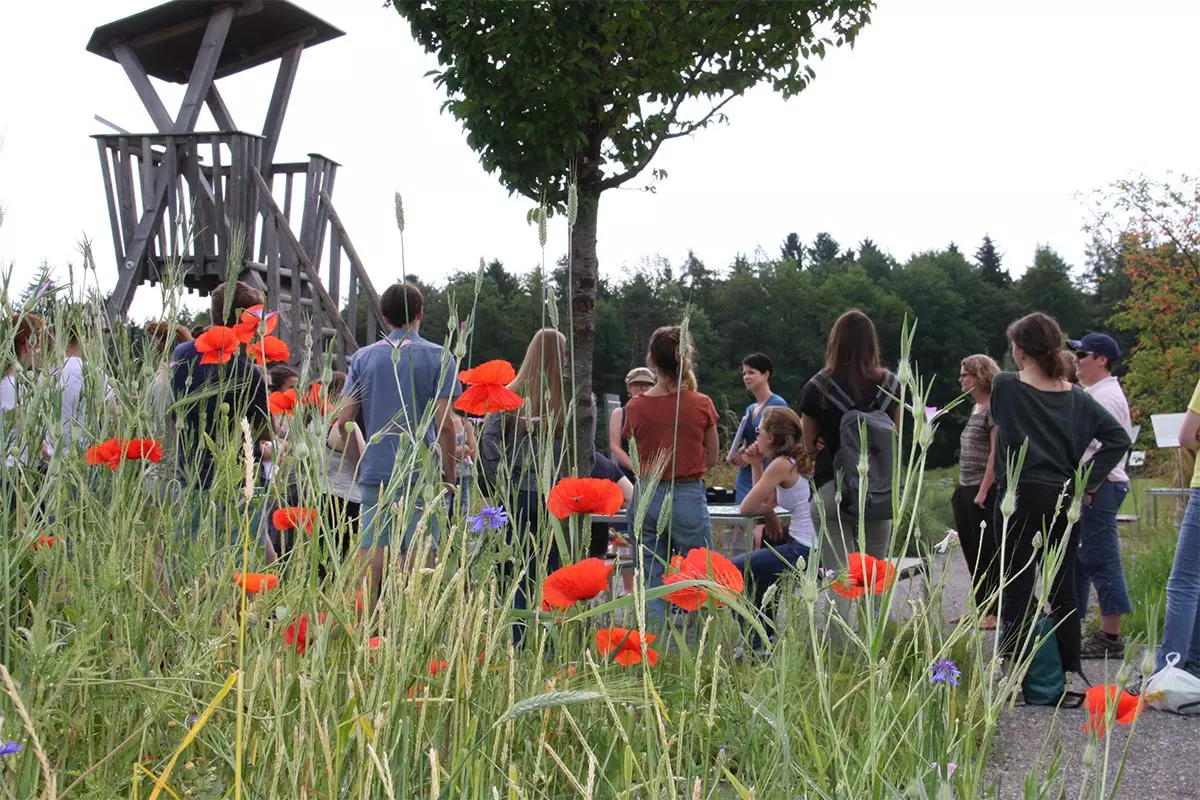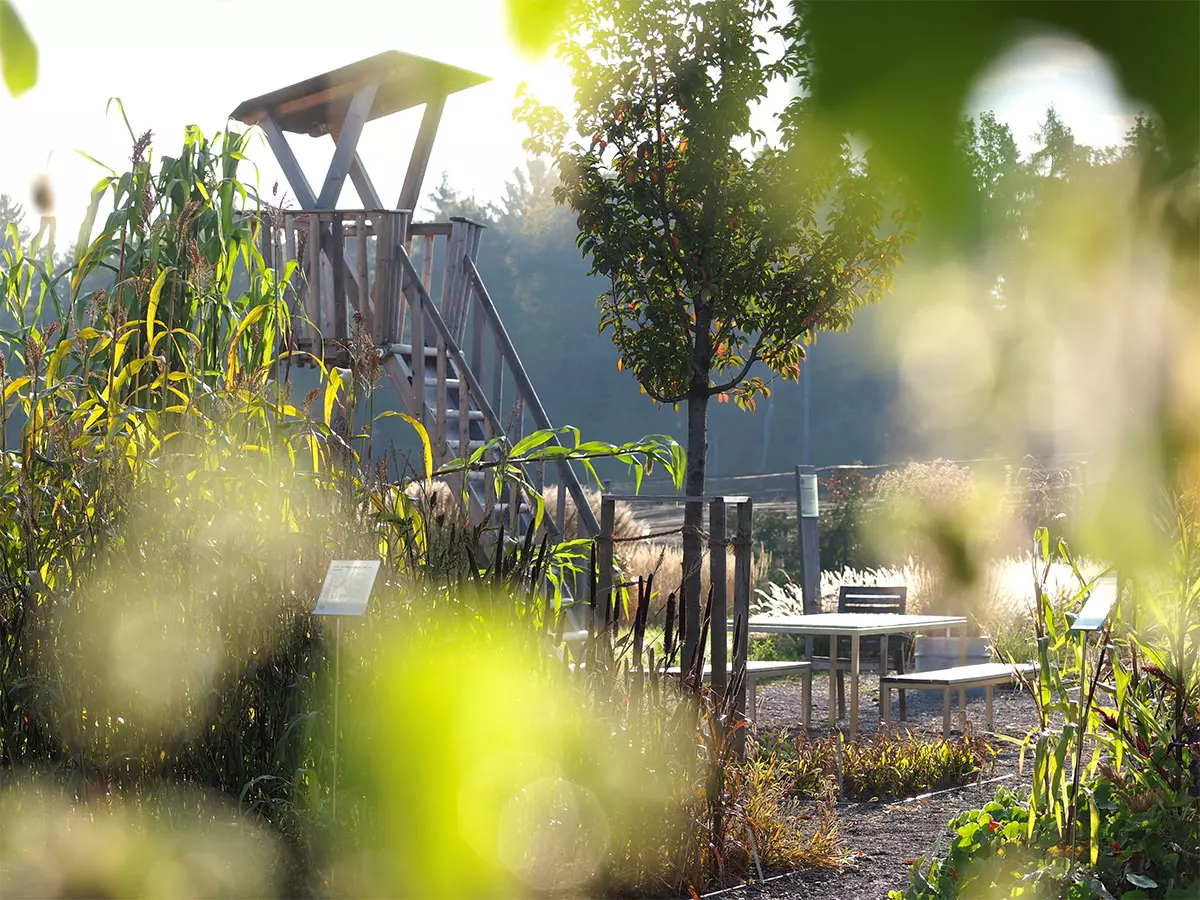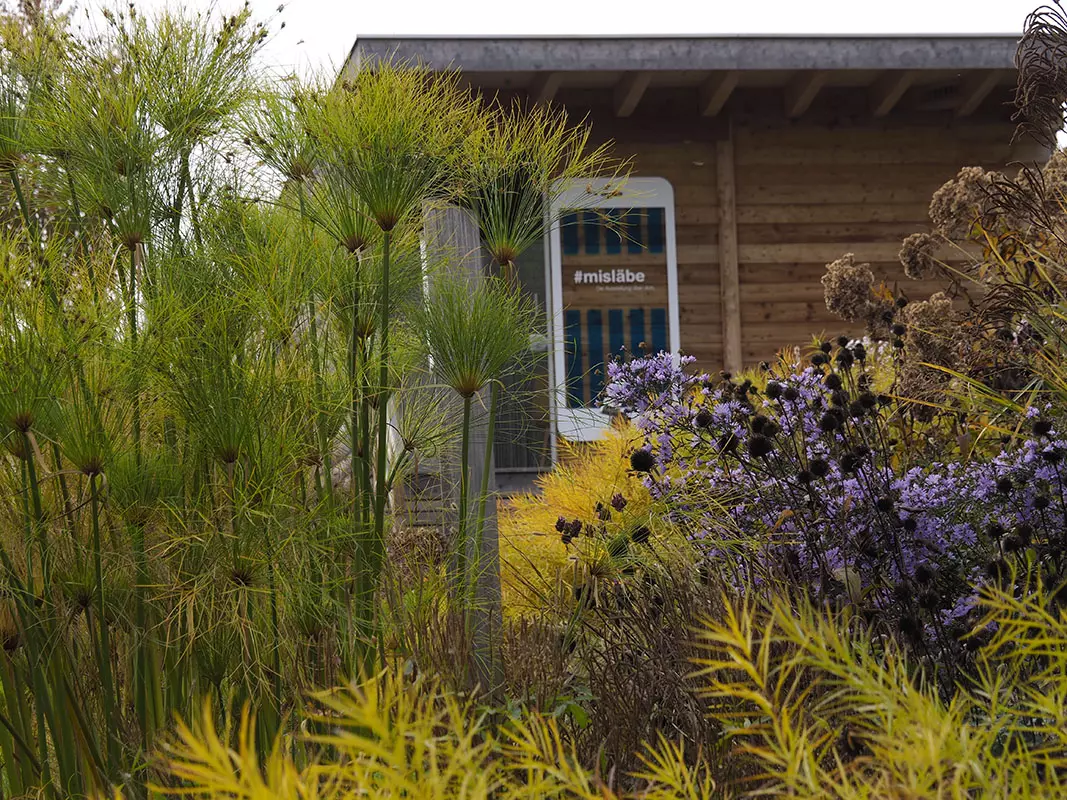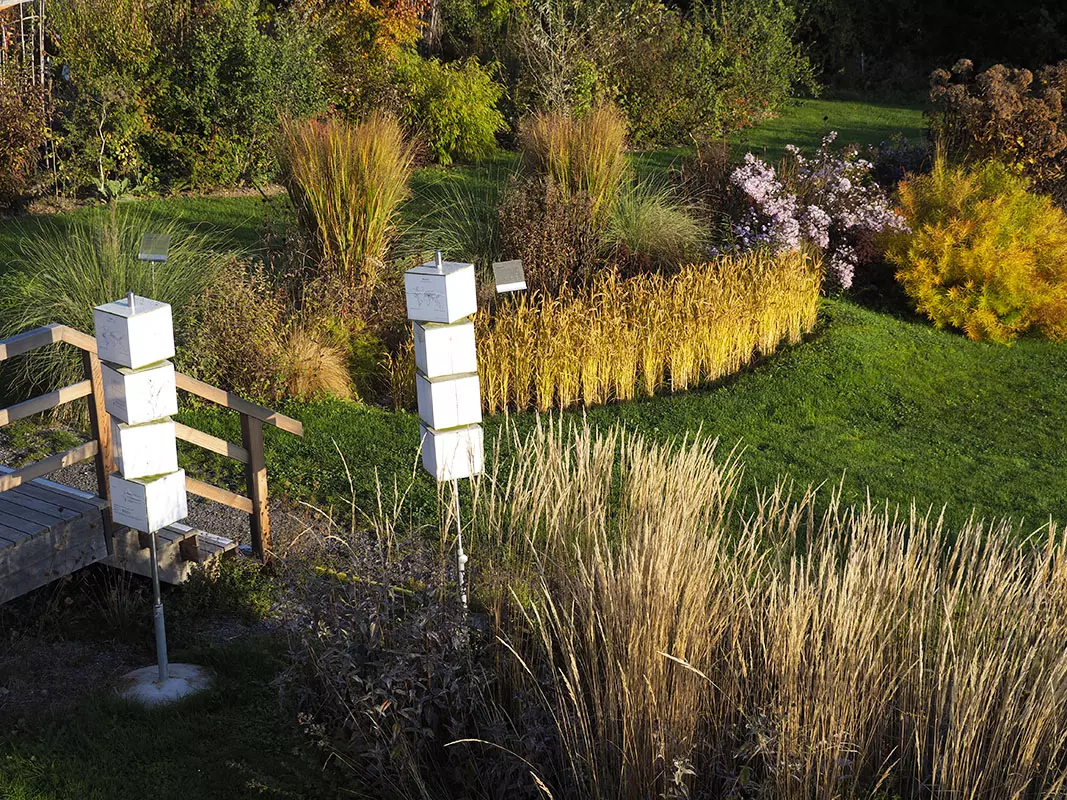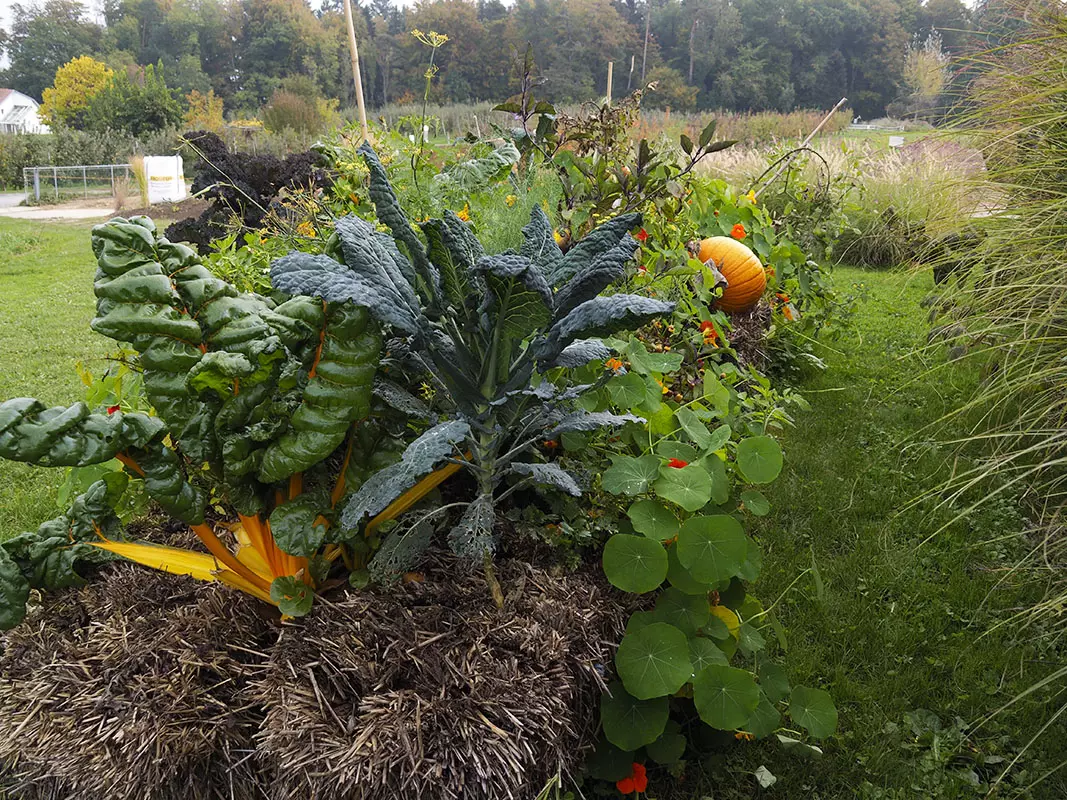Grassland
Since 3.5 million years on the menu: grass
Since the beginning of agriculture, cereals have been a basic staple food, and even today, wheat, corn, rice and millet provide almost half of all the calories consumed worldwide. How much land is required to produce one kilogram of bread? How far can you get with one hectare of biofuel in your tank? Answers to these questions as well as more information about the history of grasses can be found on a tour of the grasslands.
You will see - grasses are much more than just cow feed - they have changed our world!
Excursion with your class
In the excursion "Grasses - The green gold" (only available in German) we will illustrate how seven cultivated grasses have shaped our history. We show the importance of these grasses in our society and illustrate the complex interrelationships surrounding sustainable nutrition and the production of biofuels. In addition, problems such as food waste and shrinking arable land per capita are also addressed. In interactive stations, the students can directly apply and discuss what they have learned.
The excursion is designed for primary, secondary and grammar school level.
Reference to the «Lehrplan 21»
Cycle 2, «Lehrplan 21»
Nature, Human, Society [Natur, Mensch, Gesellschaft (NMG)]: 2 (explore and preserve animals, plants and habitats [Tiere, Pflanzen und Lebensräume erkunden und erhalten]), 7 (access and compare modes of life and habitats of humans [Lebensweisen und Lebensräume von Menschen erschliessen und vergleichen])
Education for a sustainable development: section «sustainable environment & resources, economy & consumption» [Bildung für nachhaltige Entwicklung: Bereich «Nachhaltige Umwelt & Ressourcen, Wirtschaft & Konsum»]
Cycle3, «Lehrplan 21»
Nature and technology: 9 (explore ecological systems) [Natur und Technik: 9 (Ökosysteme erkunden)]
Economy, work, household [Wirtschaft, Arbeit, Haushalt]: 4 (diet and health - understanding relations and acting reflectively [Ernährung und Gesundheit - Zusammenhänge verstehen und reflektiert handeln])
Spaces, times, societies [Räume, Zeiten, Gesellschaften]: 1 (investigate the natural foundation of earth [Natürliche Grundlagen der Erde untersuchen]), 3 (analyze the human-environment-relationship [Mensch-Umwelt-Beziehungen analysieren])
Maturitätsschulen, EDK- Rahmenlehrplan
Courses: History, Biology, Geography
Berufliche Grundbildung
Area [Lernbereich] «Society»: aspect ecology, aspect culture [Aspekt Ökologie, Aspekt Kultur]
This might also interest you
App iGräser
Identify the 111 most common native forest and outdoor grass species. (only available in German)
App iGräser
Foto gallery Grüental
Visitor information
Identify the 111 most common native forest and outdoor grass species. (only available in German)
Take a "walk" with us through the garden year in the Grüental.
The way to visit the gardens and infrastructure.
